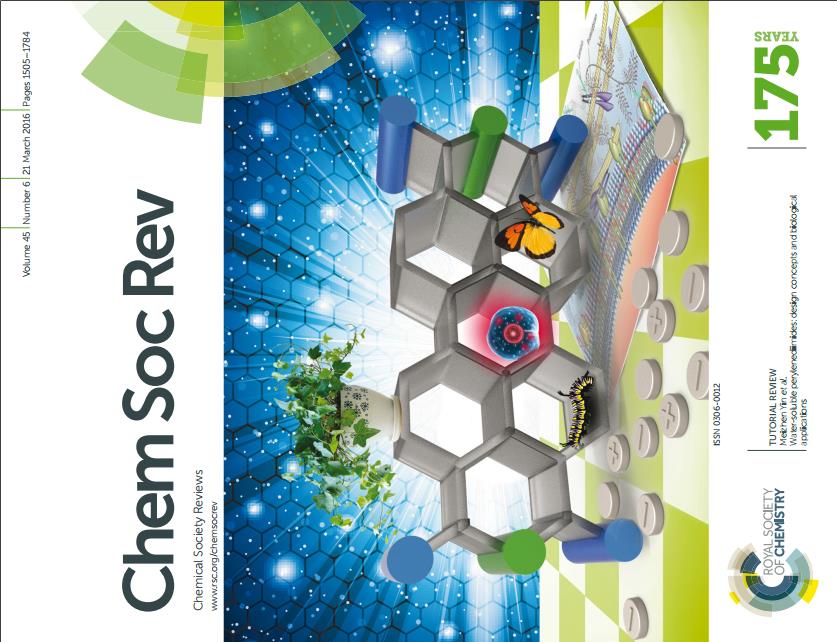
ABSTRACT: Water-soluble perylenediimides (PDIs) with high fluorescence intensity, photostability and biocompatibility have been successfully prepared and applied in the biological field. In this tutorial review, we briefly focus on the synthetic strategies for the preparation of water-soluble PDIs by incorporating ionic or non-ionic substituents with multiple polar groups into the bay-region, imide- or ortho-positions of PDIs. These ionic/non-ionic substituents can suppress p–p aggregation and shield the inner perylene chromophores, thus contributing to the water solubility which is essential for biological applications. The optical properties, absorption and emission maxima above 500 nm, minimize the autofluorescence background of cells and provide access to imaging in living cells. The biological applications of water-soluble PDIs are discussed from simple (basic) to complex (advanced) processes, including biosensing in vitro studies, imaging and gene/drug delivering in living cells, tissues and the whole body. The promising future of designed multi-functional water-soluble PDIs will be highlighted in this review.
